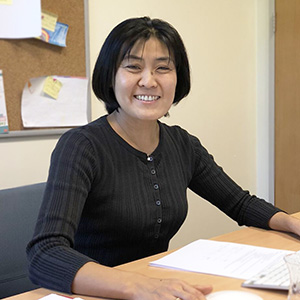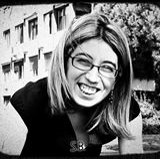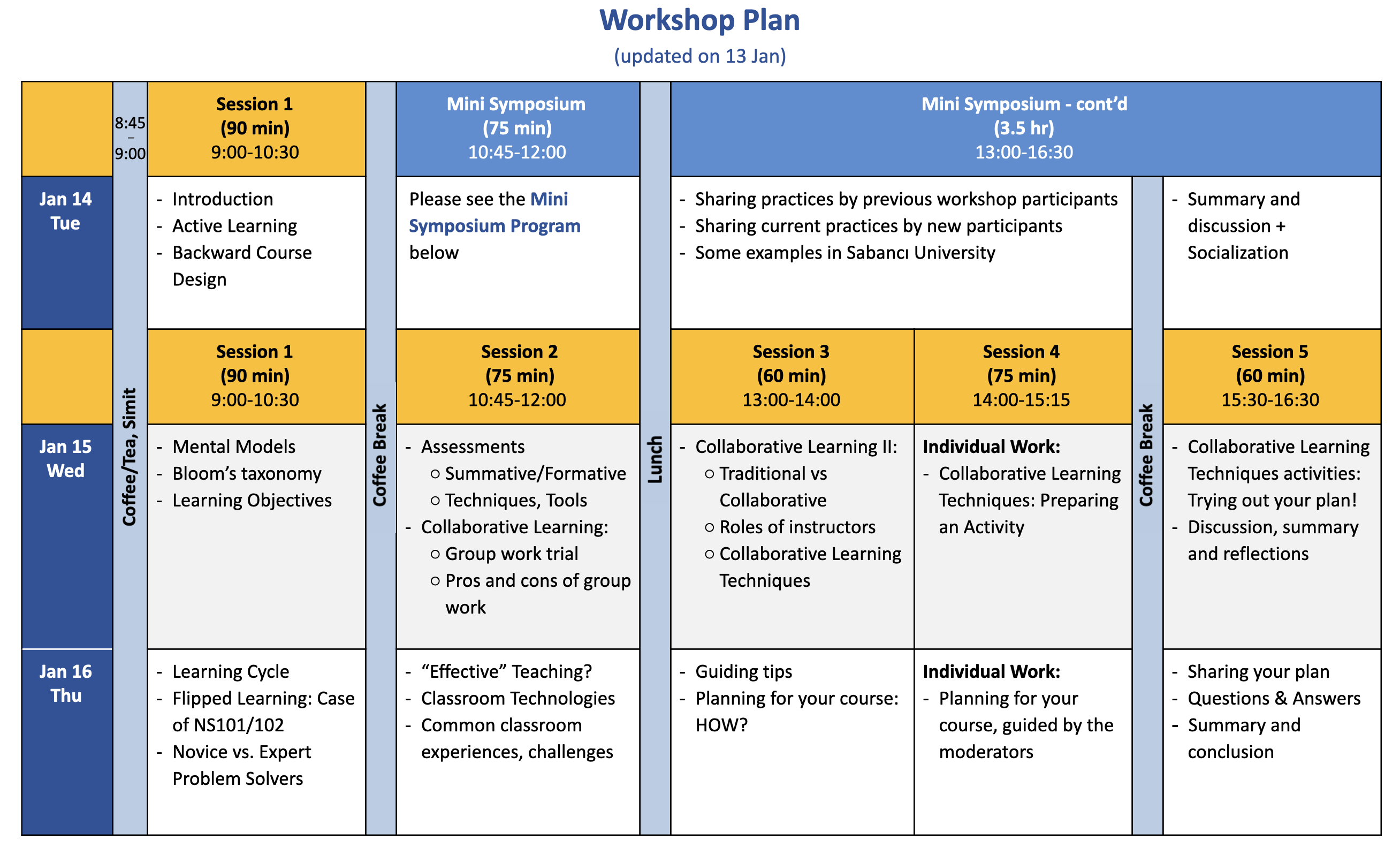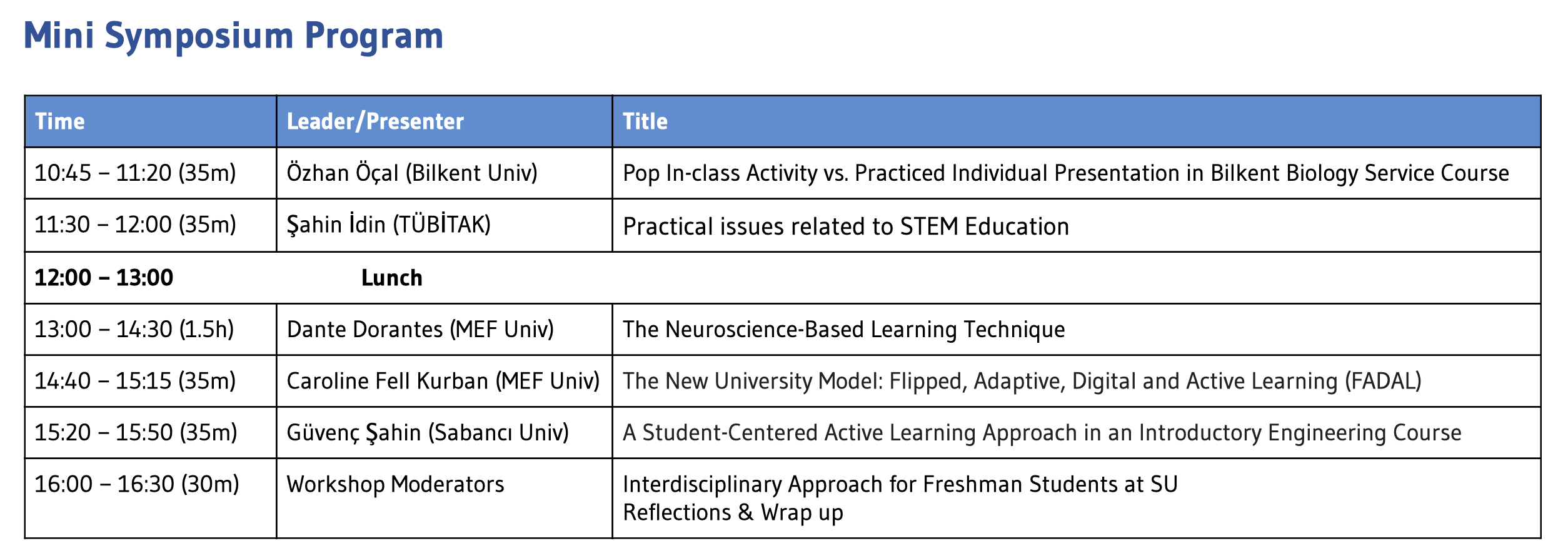Updates
Workshop Information & Materials for Participants available!
Sabancı University has adopted the global effort to rethink the role of the faculty and the students in undergraduate education and prioritize “Scholarship of Teaching and Learning” (SoTL) that values evidence-based student learning. As a part of this effort, Science of Nature (NS 101/102) Courses have been offered during the last 6 years in a theme-based modular format, emphasizing an interdisciplinary and student-centered course structure based on active learning. The courses cover basic concepts of physics, chemistry, and biology through the interdisciplinary modules. As a part of the first-year core curriculum at Sabancı University, the NS courses are compulsory for all incoming freshman students regardless of their prospective majors. To date, we have worked with more than 5000 students in this student-centered version of the NS courses.
Such a student-centered approach is unique especially for large freshman STEM courses in Turkish universities, and over the last 6 years we have accumulated a variety of experiences and data with our freshman students, which we believe are worth sharing. We have also developed and established professional development programs for instructors and assistants of the NS courses to inform them on the pedagogy behind the course and to help them gain the necessary skills to become effective facilitators in the student-centered learning environment.
The Workshop on Innovative Approaches in College STEM Education is aimed at sharing this professional development opportunity for college-level-STEM educators, who are interested in SoTL and in applying innovative approaches to their courses. The program consists of two phases: First, the 3-day workshop provides background pedagogical information through activities on student-centered strategies. It is then followed by an application phase, during which participants are expected to apply some of the learned approach with their own students. We will have an online feedback meeting in summer 2020 to conclude the program. We plan to compile and anonymously share the participants’ experiences and resources they find in the process on this website, which we hope will benefit the larger educator community within Turkey and beyond.
About the Workshop
The goals of this workshop are to:
- share our experiences with the student-centered pedagogy used in the NS courses,
- discuss the current advances in SoTL,
- provide the participants an opportunity to develop skills to become effective facilitators in active-learning classrooms, and
- actively engage the participants in the refinement and assessment of their own courses.
The Workshop Inclues Two Phases:
- 3-Day Workshop (January 14-16): Composed of a series of 1-1.5 hour group sessions and some individual work. Constant guidance and feedback will be provided. The topics includes:
- Student-centered course design
- Active learning
- Collaborative learning
- Formative/summative assessment
- Classroom assessment techniques
- Collaborative learning techniques
- Flipped classroom
- Planning for possible application in your course
- Application & Feedback Meeting (June - July 2020): Trial implementation (at any scale possible) of the plan that each participant prepare at the workshop. The participants are encouraged to share a summary of the experiences of their implementations. An online feedback meeting will be organized for each (group of) participants in early summer 2020 to discuss how they implemented the innovative approaches in their classroom and the strengths and weaknesses of their implementation.
See tentative workshop program.
- Workshop venue: Sabancı University, Tuzla Campus (Orta Mahalle, 34956 Tuzla, İstanbul). Click here to see the map.
- Capacity: 25 participants
- No participation fee is required
- The workshop will be conducted in English
Visit the previous workshop websites:
- Workshop on: September 4-7, 2018
Workshop Moderators

Yuki KanekoResearch Interests: High-energy astrophysics, Science education. |
EducationPh.D in Physics, University of Alabama in Huntsville Teaching Experience1995-2006 Volunteer teachers/tutors at various K-12/college programs in the US Teaching PhilosophyI believe that knowledge is something that is built within each learner in a way that is unique and specific to each learner. Learners must integrate new pieces of information into their own context in order to build the knowledge. A teacher’s time is best spent coaching that learning process with the students, rather than just providing information. |

Aslıhan Muazzez ÜnsalResearch Interests: Spectral analysis of Gamma ray bursts (GRBs) prompt emission, Science education in college. |
EducationPh.D in Physics, Sabanci University Teaching ExperienceLead Discussion and Laboratory sessions of Freshman Astronomy courses in Boston University Teaching PhilosophyBeing a good teacher is not all about knowing and explaining everything, rather it is to make your students be aware of their own learning. This requires being able to see students’ needs individually and provide appropriate learning environment, resources, and activities to them. |

Süphan BakkalResearch Interests: Natural antimicrobials, antimicrobial resistance, and Science Education. |
EducationPh.D in Molecular and Biology Graduate Program, University of Massachusetts Amherst Teaching Experience2009-2010 Instructor: BIO H100-Life Sciences and Global Issues at UMass Teaching PhilosophyMy experience in research and science education taught me that learning is a unique experience for everyone and learners may have different challenges according to their skills and learning styles. Learners’ active participation is the key component in the learning process. My role as a teacher is to create a learning environment that encourages learners’ motivation and participation as well as to provide guidance to the learners to strengthen their learning skills for becoming independent learners. |
What are provided during the 4-day workshop?
- Daily lunch
- Coffee breaks
- Travel and accommodation support for limited number of participants
- In-city transportation support for local participants (within Istanbul)
Who should apply?
Someone who is:
- Teaching or providing support for a college-level STEM course
- Designing a STEM course or curriculum
- Interested in learning about what current research tells us about students’ learning
- Motivated to learn through hands-on experience how to effectively impact the academic achievement growth of students
- Looking for an opportunity to initiate long-term collaborations with other STEM educators
- Highly valuing teamwork
- With good communication skills in English
How can you apply?
Please fill out and submit the online application form from this application link.
Since the space is limited, all applications will be reviewed and the participants will be selected based on the application materials. The application must be submitted by Monday, December 23. Early submission is strongly encouraged as the selection process will start immediately.
Questions?
Please contact Yuki Kaneko (yuki@sabanciuniv.edu) if you have any questions about the workshop.
Workshop Tentative Plan


Click here to download the poster.
